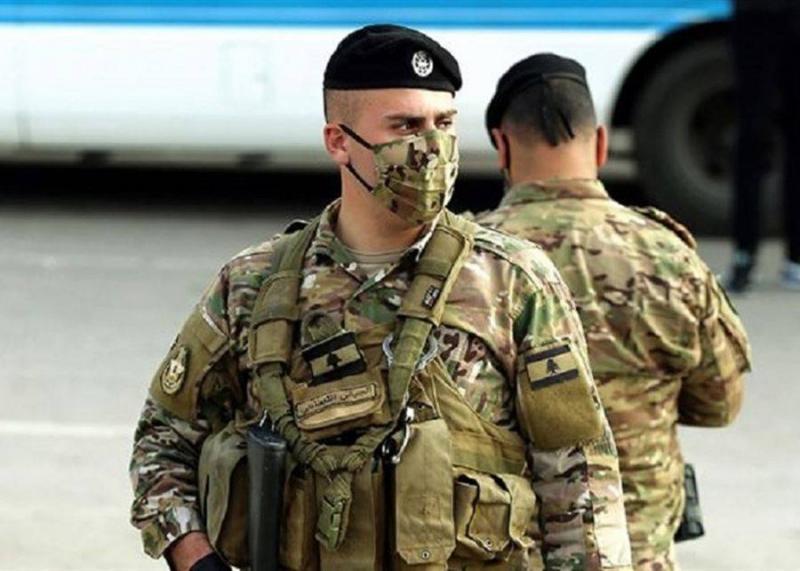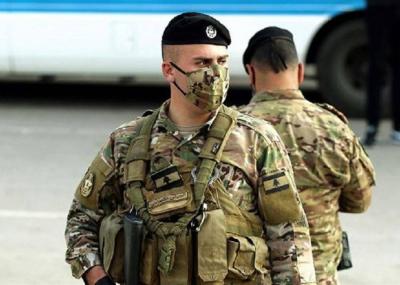According to a proposal raised by the Army Commander, General Joseph Aoun, Minister of Defense in the caretaker government, Maurice Sleem, refused to delay the retirement of two generals in the military council: Chief of Staff General Amin Al-Aram and the Inspector General of the Military Council General Milad Iskhaq, who are set to retire on December 24 and 25, respectively. He insists that there is no political background to his position and states that he would not have objected if the extension had been approved by law in the House of Representatives, referring to a proposed law for the extension of military leaders, including the Director General of General Security, General Abbas Ibrahim, and General Al-Aram, which was rejected from being introduced or discussed in the general assembly of the House of Representatives for purely political reasons.
This issue is not new, and history has recorded precedents where the Army Commander proposes a similar matter to the Minister of Defense, leading to an extension of service rather than renewal. Furthermore, extensions have become a common practice, despite their negatives, and have become the lesser evil to avoid consecutive political shocks. However, the political calculations have changed from the distant past to the present. The head of the "Free Patriotic Movement," Gibran Bassil, did not accept the Army Commander's request and asked the Minister of Defense, who is aligned with him, to refrain from signing the decision. Otherwise, the matter could have passed quietly, especially since its occurrence would not set a precedent anyway. Even Bassil's close associates acknowledge that the non-extension will strengthen the Army Commander's position, rather than the opposite.
However, contrary to what the Minister of Defense stated, it is difficult to conclude that the refusal to sign is purely legal. It has become well-known in Lebanon that there are political backgrounds to any decision made, especially when the two individuals directly involved in this decision are political rivals exchanging political blows during the presidential election campaign, referring here to the head of the "Free Patriotic Movement" and General Aoun. In practice, the non-extension for the two generals serves the Army Commander, who becomes a leader with exceptional powers in the military council he heads.
Some suggest that Joseph Aoun's initial refusal of the retirement decision was influenced by a message he received from the head of the Socialist Party, Walid Jumblatt, through a mutual friend, drawing his attention to the fact that not extending Al-Aram's term would deprive the Army Commander of votes from Socialist MPs if his candidacy reached the House of Representatives. In terms of political and presidential calculations, Aoun assessed the situation and found it more appropriate to withdraw the file, relieve himself of this burden, and throw it into the lap of the Minister of Defense, knowing that a matter like this would not easily pass under Bassil's watch, especially since the Army Commander completely rejects engaging Bassil on the matter, and their relationship has remained frozen since Michel Aoun was still in the Baabda Palace.
Stimulated by the Socialist's insistence on extending Al-Aram's tenure for future calculations in two aspects, their MPs proposed a law in the House of Representatives to postpone his and General Ibrahim’s retirement. They believe that the Army Commander's powers will be conferred onto Al-Aram once Joseph Aoun is elected president or reaches retirement age next October. However, the proposed extension currently differs from postponing retirement for two years, as it will not exceed three months, which is merely a delay of the problem rather than a solution.
If the settlement regarding General Ibrahim reaching retirement age was resolved with the approval of the Shiite duo for Brigadier Elias Beissari to assume the duties in an acting capacity once General Ibrahim reached retirement age, Jumblatt does not accept the retirement of the Chief of Staff who is politically aligned with him and for whom there is no one to fill the position within the military hierarchy.
These are intertwined calculations between Joseph Aoun and Gibran Bassil, which are concerned with the presidential election file. Sources close to the matter confirm that Bassil refuses to grant any privilege to the Army Commander and shows no concern for powers that could be transferred to the Army Commander, who will reach the legal age in less than a year, in a Council that currently has no function or responsibilities. The problem is that these two positions cannot be filled by proxy, and the more significant and difficult issue is that the country has been living on patchwork in terms of powers or task distribution in light of the presidential vacuum and the caretaker government. Some draw on a previous experience during the transitional government led by Michel Aoun in 1982, stating that three members of the military council representing the government resigned, but Aoun was not affected and continued his term and led wars. So, is today's vacuum being approached from this angle, or is the aim to let the military institution decay like other institutions, if it hasn't reached that state yet? Additionally, does the vacuum in the military council mean granting exceptional powers to the Army Commander? Does that require a decision from the Cabinet? Will that be a pretext for the caretaker Prime Minister to gain additional reasons to convene his government soon?




